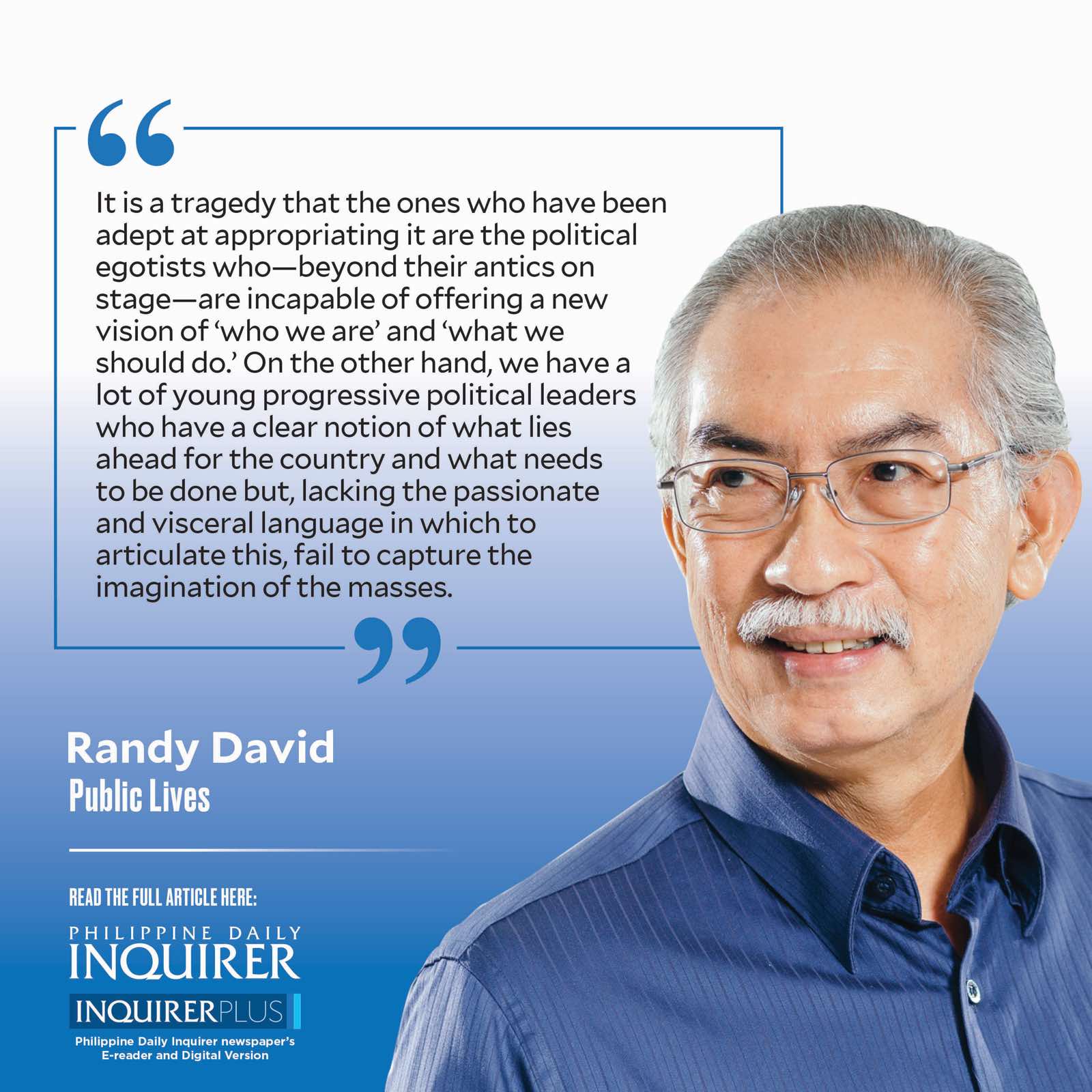Overcoming political despair

When presented by opinion polls with the top choices for senators at next year’s midterm elections, middle-class educated Filipinos typically react with a mixture of disbelief and despair. They rue the fact that from the same list are names of politicians who may someday be perceived as “presidentiable.”
In the current election cycle, the ones that consistently stand out in the top 12 are individuals who appear to have mainly made a mark in the mass media for the roles they have played as heroes, protectors of the poor, and dispensers of quick justice. It is easy to scoff at these choices as nothing more than vessels of illusory empowerment, the outcome of voter immaturity and ignorance.
But if they are, then nothing much has changed in our political life. From the very moment of our founding as a nation, Filipinos have searched for political figures who embody a form of redemptive hope, a break from the systemic oppression and inequality in which the country has historically been mired. Many such leaders have failed to deliver on their promises or satisfy their people’s expectations. Yet, Filipinos do not tire of voting for the same type of politicians, never giving up hope, preferring to invest their trust in elections rather than in revolutions.
Nation-building, however, demands more than personal charisma. It requires a vision that includes the painstaking creation of a professional civil service, the formation of an educated citizenry, the development of a productive economy, and the establishment of a capable government under a functioning rule of law. These are collective undertakings that, by their long-term nature, have to be sustained beyond the tenure of any charismatic leader. As essential as they are to nation-building, there is usually nothing romantic about them. The civil servants who quietly work on these tasks are rarely seen as heroes.
But more than that, because they are unelected, these unsung civil servants are expected to defer to those who wield political power by virtue of their election to public office. This is probably the hardest part of nation-building—how to establish a professional bureaucracy that can competently administer the day-to-day affairs of government, especially during the most difficult political transitions.
A well-trained nonpartisan career administrative service that is immune to the vagaries of political contestation is the prime achievement of all mature democracies. Such political systems can tolerate the most eccentric and disruptive of all politicians because of their strong institutions.
But there is often a downside to these modern public institutions—and this is best summed up by the term “bureaucratic” in all its negative connotations. This happens when officials become so fixated on the rules and procedures that they lose sight of the larger mandate of their agencies. Instead of dispensing public service, they become empires of petty authority. Such organizations become so calcified that they turn into fetters impeding change and reinvention.
The German sociologist Max Weber saw this as the unexpected outcome of rationalization, a disease in modernity that can only be cured by the restoration of value rationality through politics. This necessary interruption is the role he assigns to charismatic leaders who have a vocation for politics. He did not mean the narcissists and demagogues who habitually promise to rescue the masses from the dysfunctions of a corrupt and uncaring bureaucracy. He was referring, rather, to redemptive figures who exemplify a practicable vision of political renewal.
The political philosopher Wendy Brown, in her recent book, “Nihilistic Times: Thinking with Max Weber,” writes: “Charisma, with its capacity to incite and excite, inspire and mobilize, and above all lead beyond business as usual, is an indisputably potent element of political life.” It is a tragedy that the ones who have been adept at appropriating it are the political egotists who—beyond their antics on stage—are incapable of offering a new vision of “who we are” and “what we should do.”
On the other hand, we have a lot of young progressive political leaders who have a clear notion of what lies ahead for the country and what needs to be done but, lacking the passionate and visceral language in which to articulate this, fail to capture the imagination of the masses. Brown describes their accustomed political style as “free of rhetorical power, prevailing only on the basis of their evidentiary and logical soundness.” In short, bland.
What is needed is the re-enchantment of political life—which, in recent years, has been the monopoly of rude, intimidating, and angry demagogues—by charismatic leaders who can mesmerize crowds with visions and actions that remind them of their power to change the world.
—————-
public.lives@gmail.com
















